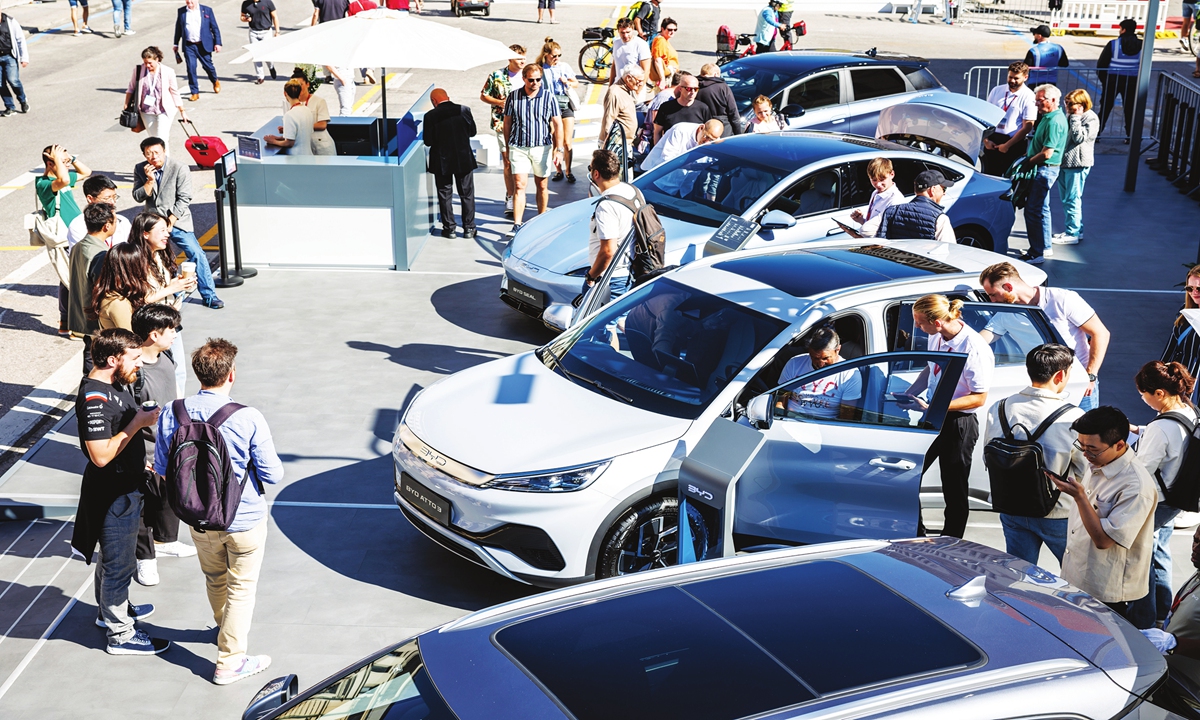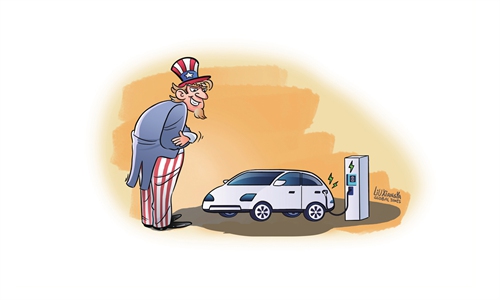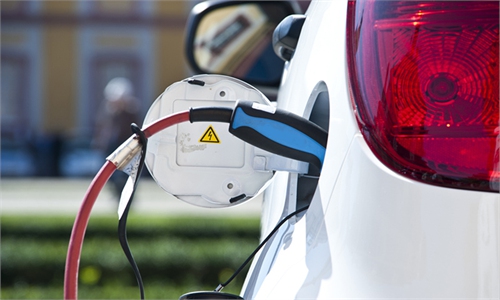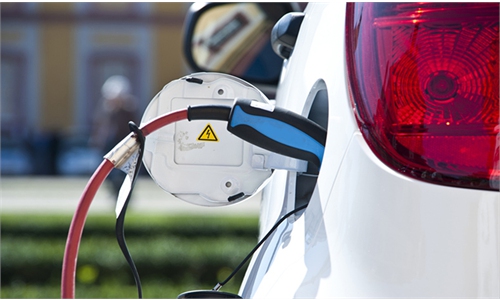Unfair treatment of Chinese firms will backfire on EU

Visitors inspect vehicles at the booth of Chinese manufacturer BYD at the Open Space of the IAA 2023 auto show in Munich, Germany on September 5, 2023. Photo: VCG
The European Commission announced on September 13 that it has begun an anti-subsidy investigation into China's electric vehicles (EVs). The EU's anti-subsidy regulations mainly target China's state-owned enterprises, focusing on whether the Chinese government's subsidies have caused price distortions.Anyone with a bit of understanding of today's Chinese electric vehicle market knows that the affordability of Chinese electric vehicles is due to the fierce competition between companies that has reached a fever pitch. Even if there are government subsidies, they are mainly given to consumers. Some EU member states, the US and other major EVs manufacturing countries also adopt similar subsidy methods.
If we follow the evolution of the EU's anti-dumping to anti-subsidy investigation on Chinese products, we will see that this policy carries solid political discrimination - convicting first, then finding evidence, and often requiring Chinese companies to "prove their innocence by themselves."
According to the protocol on China's accession to the World Trade Organization, for a period of 15 years, investigating authorities would be allowed to determine normal value in anti-dumping proceedings involving Chinese products using methodologies "not based on a strict comparison with domestic prices or costs in China." But members were required to terminate the use of these methodologies no later than 11 December 2016, and the continued use of these methodologies thereafter is in violation of a Member's obligations under the covered agreements.
However, the EU quickly strengthened its anti-subsidy policy, incorporating government subsidy behavior involving state-owned enterprises into the "Agreement on Subsidies and Countervailing Measures" scope.
"Since December 2017, the EU has an alternative method to calculate dumped imports if state interference significantly distorts the economy of the exporting country. In this case, the Commission will use undistorted benchmarks to determine the 'normal value' of the product. This can apply to all WTO Members where significant market distortions are found," said European Commission's official website.
The EU's spearhead is still aimed at China's economic system. This is similar to raising so-called security issues to contain China's 5G technology. In fact, some European politicians have linked Chinese-made EVs with security issues.
In recent years, the different ways of containment adopted by Western developed countries against Chinese manufacturing are almost all politically motivated, and some are simply intended to dent Chinese manufacturing under the guise of so-called human rights issues, and other issues related to Xinjiang Uygur Autonomous Region, Hong Kong Special Administrative Region and Taiwan island. Doing so is to occupy the moral high ground and to escape the constraints of the basic international norms and orders determined by international organizations such as the WTO. But in the final analysis, it is still to protect their industries and markets.
According to the EU's "trial" logic, Chinese companies, because they are Chinese and have developed in the Chinese economic system, will definitely use low prices to dump and will definitely receive government subsidies.
The rise of Chinese manufacturing will undoubtedly pose a shock to the EU, but if it cannot treat such competition fairly and continues to politically discriminate against Chinese companies, the EU itself will ultimately be hurt. Anti-dumping and anti-subsidy measures may benefit EU companies for a while, but they may not be able to maintain sustained vitality in global competition.
This topic also involves how the EU treats China's rise fairly, impartially and rationally. The EU should realize that China's development will surpass Europe in some economic or technological fields, and it cannot judge such surpassing as not conforming to the EU's "norms" because of different systems and ideologies.
Accepting China's rise, strengthening pragmatic coordination and cooperation with China is the only way to achieve mutual benefits. After all, China has become the most important market globally, and many products produced by EU companies, including EVs, enjoy a good reputation in the Chinese market.
The EU's policy toward China must avoid a dead end, and it cannot keep blocking made-in-China from all directions. If the EU continues down this path, it will have to follow the US' strategy toward China, pushing China to the opposition side and making the EU unable to maintain its independent position in global affairs.
The author is a senior editor with People's Daily, and currently a senior fellow with the Chongyang Institute for Financial Studies at Renmin University of China. dinggang@globaltimes.com.cn. Follow him on Twitter @dinggangchina




